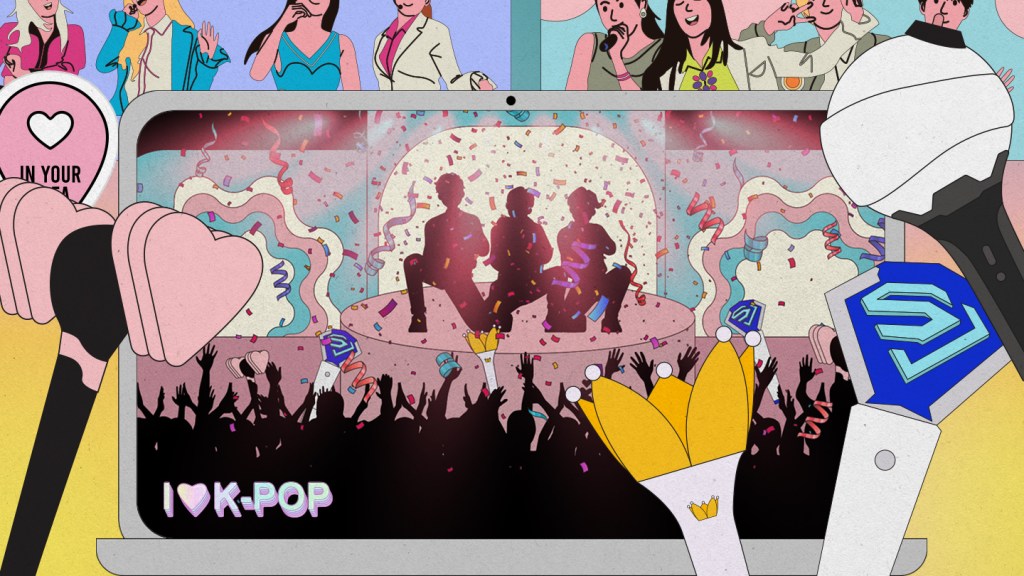Seattle, Washington is a thoroughly modern city. Construction cranes dominate its skyline, and tech startups pop up like mushrooms after one of the city’s abundant rain showers. Commercial juggernauts like Facebook, HBO and especially Amazon ship tech bros in, who then raise the rent and push the last remnants of the 90s grunge capital out. Despite all the shiny signs of progress, though, the looks—and sounds—of the 1980s, remain, and what’s more, they’re expanding.
Outside of the corporate glut, it’s not uncommon to walk up Pike Street to Capitol Hill and see skinny black jeans, bullet belts, and patch vests intermingled with the business casual attire. On a Monday night, one of those belts might belong to Amy Lee Carlson, clanking against her hip as she walks to the Crescent Lounge, the gay bar where she hosts heavy metal karaoke on Mondays.
Videos by VICE
Her voice carries over the entire block when she sings renditions of Dio classics, and Carlson puts that voice to further good use while singing in Substratum. The band is only one of the new crop of Washington heavy metal bands aiming to recreate the sounds of the genre’s pre-thrash heyday (which hit roughly during the early 80s), and drawing healthy new crowds while they’re at it.
The scene itself is small and incestuous. Bands share and exchange members constantly, and most of these musicians once played in local punk, black metal, and deathcore bands. Many of them began playing live less than a year ago, and a few only have rough demos recorded. Even so, they’re getting large gigs. Bands like Substratum and Hexengeist perform monthly, either as local openers for their own influences such as Riot, Loudness and Armored Saint, or as headliners themselves in smaller venues like The Highline.
While more bands in general are playing this style of music now than a decade ago (California’s recent Frost and Fire festival was another excellent example of the phenomenon’s rising power), Washington’s local traditional heavy metal lineage dates back to when the sound of Jackson flying V’s plugged into Marshall stacks was just contemporary rock music. Local heroes Queensryche took Seattle traditional metal worldwide in 1988 when they opened for Metallica on the Damaged Justice tour. Washington’s current cutting edge, though, are more likely to name-drop local legends Metal Church, who never made it big but keep producing records, and just finished a tour opening for Megadeth. After those bands stretched past their commercial zeniths, metal remained on life support in Washington, as a handful of bands like Zero Down and Skelator fought to keep the style relevant. (Those interested in some of the states better-kept secrets ought to browse the substantive reissue catalog of Northwest Metal Worx, who keep the scene’s vibrant and under-appreciated local legacy alive.)
Now, instead of vintage 80s thrash, the frenetic energy of crust and black metal informs the new wave of Washingtonian heavy metal. Christian Mistress sound straight out of the 70s, but they’ve toured with Seattle’s premier death metal/hardcore hybrids, Black Breath, and played alongside a slew of more extreme-minded outfits across the country. The punk-to-metal connection transcends tourmates, it’s embedded in the musicians’ own resumes as well. For example, Substratum bassist Lane Storli played in black metal act Void Wraith, Hexengeist guitarist Pat Fry formerly played in deathgrind act Churchburner, and in a tidy twist of fate, former Christian Mistress guitarist Eric Wallace currently shreds in Black Breath.
Despite appearances, there’s no grand conspiracy to bring back Reagan-era metal. In interviews, every band in this article has said something to the effect of, “We never wanted to be an 80s band. We did what came natural.” Instead, there are deeper explanations for Washington’s 80s-friendly vibe. Nostalgia rock acts can still book shows and pack venues easily in Seattle, and many members of these revival bands had parents or older siblings who celebrated this sound the first time around. And beyond that, many in this new wave of heshers just think that metal is ready to be catchy again.Punk-aligned and unafraid of vocal hooks, Washington’s young bloods play for nostalgia and personal satisfaction, as opposed to trying to slot into any contemporary zeitgeist.
“I’m a child of the 80s, and the cartoons we watched—Transformers, Masters of the Universe—they were all full of heavy metal. You had heavy metal with your cereal,” says Jason Conde-Huston, the lead singer in Skelator. “Even though we went through the 90s, we still carry the heavy metal seed that was planted during the Reagan era.”
Other musicians leave the retrospection at the door. According to Zee Parker, the singer in Hexengeist, the people eating this music up just want to have fun. “People want to hear a combination of epic melody with heaviness but also a chord progression that keeps them engaged,” she tells us.
“I think people get tired of listening to super fast bands with Cookie Monster vocals,” agrees Larry Burnett, guitarist in Zero Down. “I think people want an anthemic chorus they can sing along to.”
They might be onto something. Washington supports a diverse ecosystem of heavy bands that run the gamut from crust punk to black metal, but right now, the sound of the 80s has a hold on the Pacific Northwest’s imagination. These are the bands embodying the New Wave of Washingtonian Heavy Metal.
Zero Down
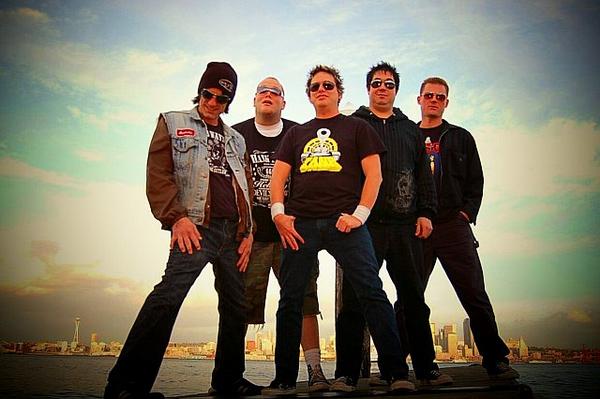
Formed in 2002, Zero Down have been playing old school heavy metal in Seattle longer than any other outfit in this article. Initially inspired by thrash, the band features ex-members of crossover groups from the 80s: vocalist Mark “Hawk” Hawkinson sang in DUMT, while guitarist Larry Burnett played in No Direction. Guitarist Matt Fox, who joined later, played in Bitter End, Holy Terror, and Shai Hulud. At the onset, Zero Down sounded like more of a 70s hard rock outfit (Thin Lizzy remains an obvious influence on their sound) but the outfit pivoted to a more traditional heavy metal sound for their first album, Old Time Revival, thanks to guitarist Lenny Burnett’s love of Accept. That sound has carried them through four full-length albums and eleven years of local gigging.
Skelator
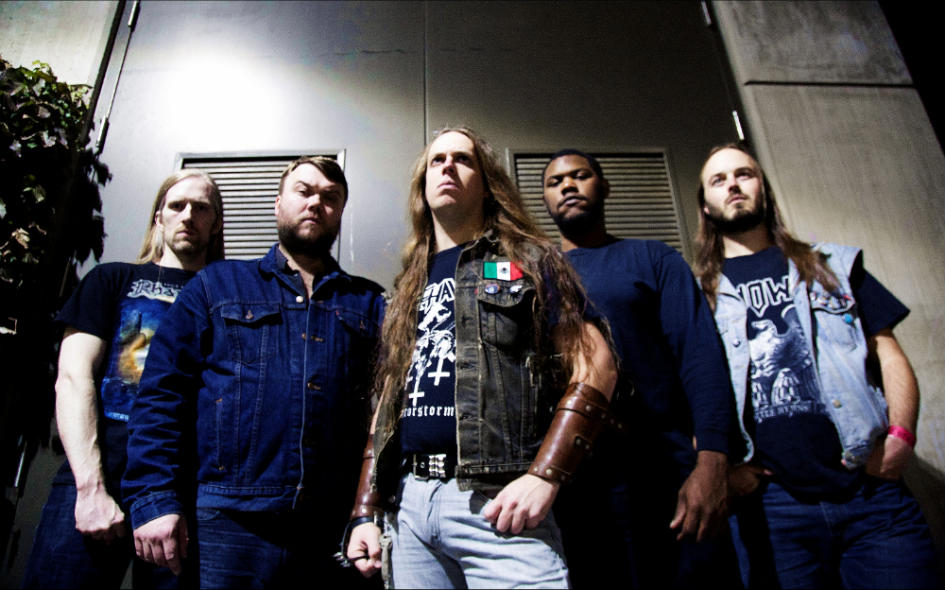
Formed in 1998 while two of its members were still in high school, Skelator is not only the oldest band in the current pack, but also the most exuberant. Singer Jason Conde-Huston wears a fringed jacket, wields a sword during live performances and writes tongue-in-cheek songs like “Test the Metal.” Although they originally formed in San Diego, Skeletor relocated to Seattle in 2005 after playing a show there to an enthusiastic crowd. With four albums and several smaller releases under their belt, and having opened for acts like Manilla Road, Riot and Ensiferum, they’ve since become the scene’s lynchpin. Most of the traditional heavy metal acts in Seattle shared a member with Skelator at one time.
Christian Mistress
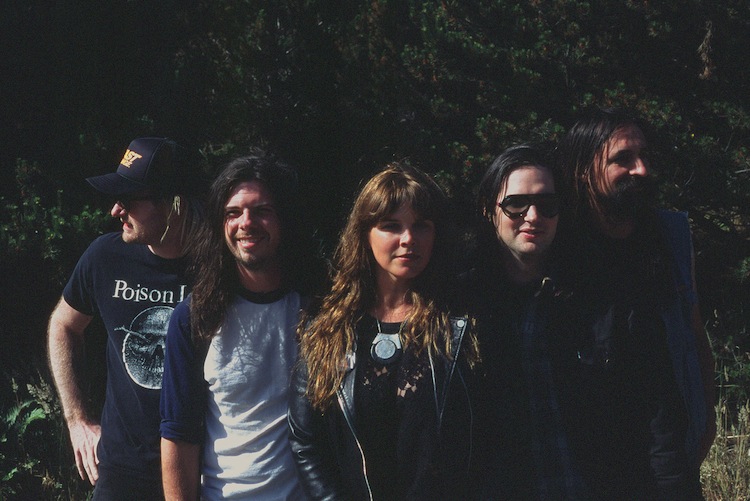
Noisey readers may be most familiar with Christian Mistress, who currently release their music through Relapse Records, former home to Mastodon and Baroness. Like those bands Christian Mistress know how to write a catchy chorus, and also how to put on a tight, thunderous live show, as the Olympia five-piece recall the sharp guitar sounds of Judas Priest welded onto a relentless punk rhythm section. Singer Christine Davis sets sky-high expectations for vocal performance, especially live. Although the band members now live in multiple states across the Pacific Northwest, they opened the door for metal outfits to perform in punk circles and vice versa, and that crossover now keeps old school heavy metal bands performing to large audiences in Washington.
Moldy Castle

Speaking of punk ethos informing a vintage heavy metal style, Olympia’s Moldy Castle only have three short-run demos to their name. Probably best known for sharing drummer Reuben Storey with Christian Mistress, Moldy Castle blended the sounds of early heavy metal with a garage rock aesthetic and a hint of Sisters of Mercy’s gothic rock pomp. The band appeared frequently during their active years, but disbanded following the untimely passing of guitarist Jeff Womeldorff. The band’s reputation persists: local bands still name-check them, and their long-shelved debut album has already been mastered and should be released independently in the next year.
Hexengeist

While Hexengeist run in the same circles as the rest of Seattle’s traditional heavy metal cohorts, the band takes more musical left turns than their peers. Formed by guitarists Pat Fry and Ice Wizard, (the latter formerly of Skelator), Hexengeist played as an instrumental unit heavily inspired by Megadeth’s Rust in Peace album for most of 2015. Things changed after recruiting singer Zee Parker, a friend of Fry’s from their mutual time in a funk covers act. Parker sings as well as screams, and her background in other forms of popular music has led Hexengeist to incorporate swing time and funk rhythms into their once-traditional thrash attack.
Substratum
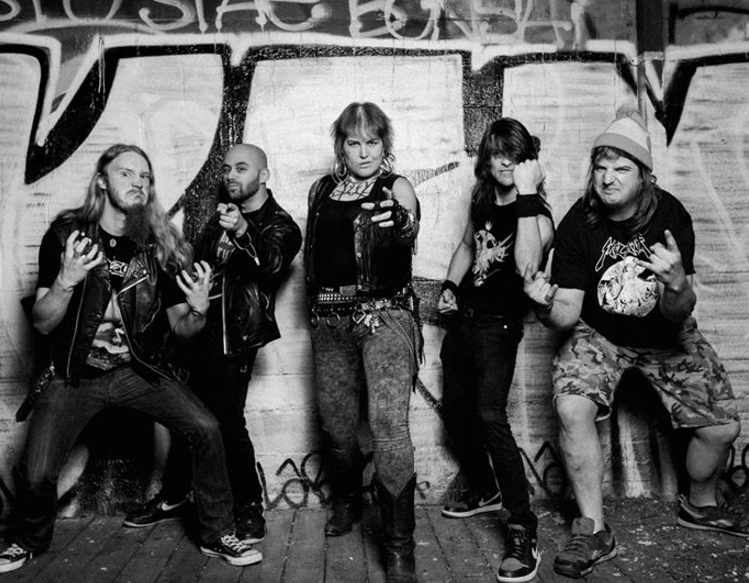
Pound for pound the most tuneful and raucous old-school metal band in Seattle, Substratum are already a headlining local act and have been tapped for a slot on the Ragnarokkr metal fest—even though they’ve only got a single demo to their name. Vocalist Amy Lee Carlson established her crust punk bonafides on the folk punk touring circuit as both a solo artist and part of Leonhardt and Company with Chris Ruetledge of Antique Scream. Her voice lends the band a hard, streetwise edge, and musically, Substratum splits the difference between Accept and early Iron Maiden. Their songs hit hard, but never skimp on riffs and hooks. On guitar, Max Nazaryan and Jonny Haynes work as a lead-trading duo in the vein of Judas Priest’s K.K. Downing and Glenn Tipton, whereas most other Washington bands use dedicated rhythm and lead guitarists.
Weaponlord
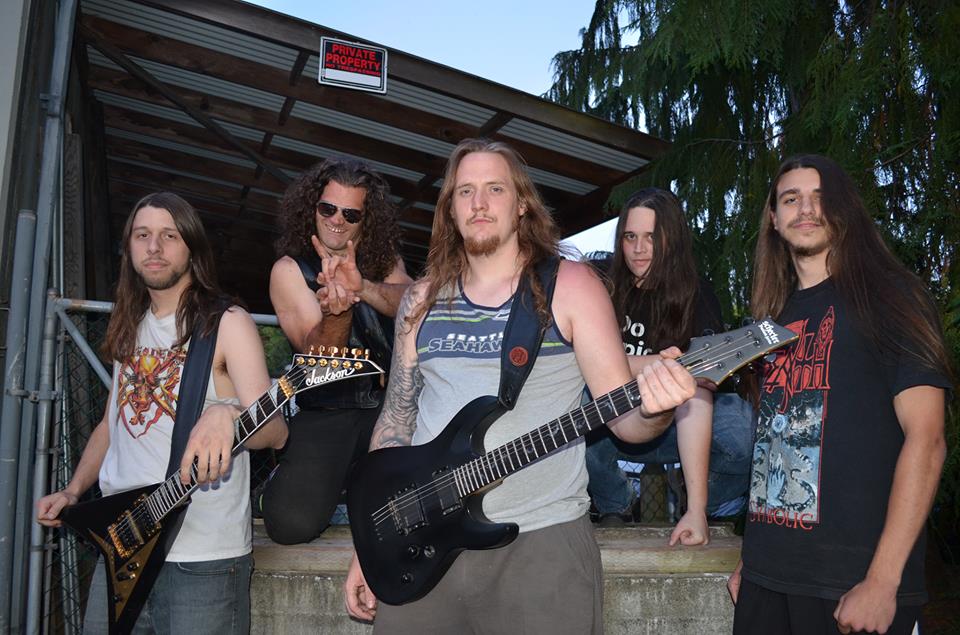
The newest traditional metal band in Seattle, Weaponlord, draws less from classic NWOBHM and more from the first wave of power metal bands, who refused to let their grandiose fantasy aesthetics get in the way of starting mosh pits. Think early Hammerfall and Helloween—or, if those names don’t mean anything to you, just imagine a battle scene from Conan the Barbarian. Weaponlord’s lead guitars incorporate strong classical influences, which further sets them apart from the many other bands on this list who prefer to stick to blues scales. Fun fact: The acoustic guitar passage in their song “Elder Gods” incorporates Bach’s “Sarabande” transposed from lute.
Joseph Schafer is the editor of the Invisible Oranges metal blog; he’s on Twitter.




